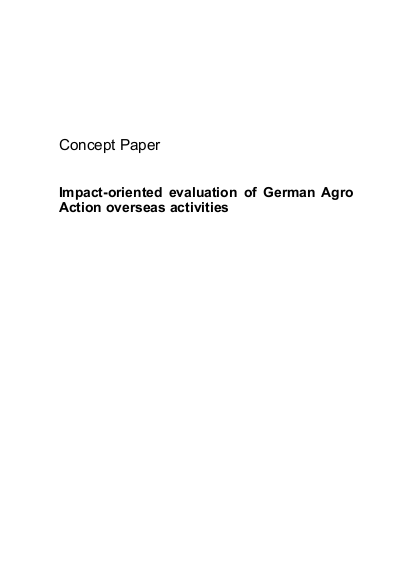
German Agro Action (Deutsche Welthungerhilfe - GAA) will be putting more emphasis than in the past on the impacts of its development co-operation (DC) and humanitarian aid (HA) when evaluating its overseas activities in priority and partner countries. This Concept Paper provides a corresponding frame of reference for GAA staff and its partners, GAA committees and the specialists commissioned by GAA to evaluate overseas activities. It describes what GAA is already doing and what it intends to achieve over the next three to four years. First of all, the Concept Paper describes definitions, objectives, addressees, types, criteria, methods and tools as well as approved quality standards for evaluations in general and impact-oriented evaluations in particular that guide German Agro Action s evaluating activities. It then explains the aims, the role and the various types of evaluation in the organisation s activities and concludes with a set of guidelines for conducting external evaluations as well as an outlook for impact-oriented evaluations. Impact-oriented evaluation aims at identifying and assessing the various changes which evolve through projects, programmes, policies and instruments as systematically and objectively as possible and at different levels. Such impacts can be intended and unintended, positive and negative, short, medium and long term as well as direct and indirect. For GAA, impact-oriented evaluation also means that the findings and recommendations of an evaluation ought to have an effect on the staff of one s own organisation as well as those of the partner, i.e. that they are made use of and implemented in the various project and programme phases.